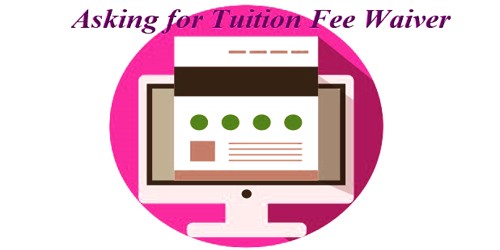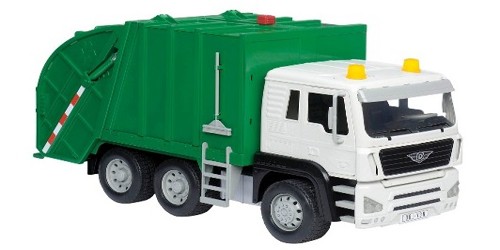notes are NOT mine and are carefully selected from a lot of resources from the internet. Here you all go:
1. Tell me about yourself:
The most often asked question in interviews. You need to have a short
statement prepared in your mind. Be careful that it does not sound
rehearsed. Limit it to work-related items unless instructed otherwise.
Talk about things you have done and jobs you have held that relate to
the position you are interviewing for. Start with the item farthest
back and work up to the present.
2. Why did you leave your last job?
Stay positive regardless of the circumstances. Never refer to a major
problem with management and never speak ill of supervisors, co-workers
or the organization. If you do, you will be the one looking bad. Keep
smiling and talk about leaving for a positive reason such as an
opportunity, a chance to do something special or other forward-looking
reasons.
3. What experience do you have in this field?
Speak about specifics that relate to the position you are applying for.
If you do not have specific experience, get as close as you can.
4. Do you consider yourself successful?
You should always answer yes and briefly explain why. A good
explanation is that you have set goals, and you have met some and are
on track to achieve the others.
5. What do co-workers say about you?
Be prepared with a quote or two from co-workers. Either a specific
statement or a paraphrase will work. Jill Clark, a co-worker at Smith
Company, always said I was the hardest workers she had ever known. It
is as powerful as Jill having said it at the interview herself.
6. What do you know about this organization?
This question is one reason to do some research on the organization
before the interview. Find out where they have been and where they are
going. What are the current issues and who are the major players?
7. What have you done to improve your knowledge in the last year?
Try to include improvement activities that relate to the job. A wide
variety of activities can be mentioned as positive self-improvement.
Have some good ones handy to mention.
8. Are you applying for other jobs?
Be honest but do not spend a lot of time in this area. Keep the focus
on this job and what you can do for this organization. Anything else is
a distraction.
9. Why do you want to work for this organization?
This may take some thought and certainly, should be based on the
research you have done on the organization. Sincerity is extremely
important here and will easily be sensed. Relate it to your long-term
career goals.
10. Do you know anyone who works for us?
Be aware of the policy on relatives working for the organization. This
can affect your answer even though they asked about friends not
relatives. Be careful to mention a friend only if they are well thought
of.
11. What kind of salary do you need?
A loaded question. A nasty little game that you will probably lose if
you answer first. So, do not answer it. Instead, say something like,
That’s a tough question. Can you tell me the range for this position?
In most cases, the interviewer, taken off guard, will tell you. If not,
say that it can depend on the details of the job. Then give a wide
range.
12. Are you a team player?
You are, of course, a team player. Be sure to have examples ready.
Specifics that show you often perform for the good of the team rather
than for yourself are good evidence of your team attitude. Do not brag,
just say it in a matter-of-fact tone. This is a key point.
13. How long would you expect to work for us if hired?
Specifics here are not good. Something like this should work: I’d like
it to be a long time. Or As long as we both feel I’m doing a good job.
14. Have you ever had to fire anyone? How did you feel about that?
This is serious. Do not make light of it or in any way seem like you
like to fire people. At the same time, you will do it when it is the
right thing to do. When it comes to the organization versus the
individual who has created a harmful situation, you will protect the
organization. Remember firing is not the same as layoff or reduction in
force.
15. What is your philosophy towards work?
The interviewer is not looking for a long or flowery dissertation here.
Do you have strong feelings that the job gets done? Yes. That’s the
type of answer that works best here. Short and positive, showing a
benefit to the organization.
16. If you had enough money to retire right now, would you?
Answer yes if you would. But since you need to work, this is the type
of work you prefer. Do not say yes if you do not mean it.
17. Have you ever been asked to leave a position?
If you have not, say no. If you have, be honest, brief and avoid saying
negative things about the people or organization involved.
18. Explain how you would be an asset to this organization
You should be anxious for this question. It gives you a chance to
highlight your best points as they relate to the position being
discussed. Give a little advance thought to this relationship.
19. Why should we hire you?
Point out how your assets meet what the organization needs. Do not
mention any other candidates to make a comparison.
20. Tell me about a suggestion you have made
Have a good one ready. Be sure and use a suggestion that was accepted
and was then considered successful. One related to the type of work
applied for is a real plus.
21. What irritates you about co-workers?
This is a trap question. Think real hard but fail to come up with
anything that irritates you. A short statement that you seem to get
along with folks is great.
22. What is your greatest strength?
Numerous answers are good, just stay positive. A few good examples:
Your ability to prioritize, Your problem-solving skills, Your ability
to work under pressure, Your ability to focus on projects, Your
professional expertise, Your leadership skills, Your positive attitude
23. Tell me about your dream job.
Stay away from a specific job. You cannot win. If you say the job you
are contending for is it, you strain credibility. If you say another
job is it, you plant the suspicion that you will be dissatisfied with
this position if hired. The best is to stay genetic and say something
like: A job where I love the work, like the people, can contribute and
can’t wait to get to work.
24. Why do you think you would do well at this job?
Give several reasons and include skills, experience and interest.
25. What are you looking for in a job?
See answer # 23
26. What kind of person would you refuse to work with?
Do not be trivial. It would take disloyalty to the organization,
violence or lawbreaking to get you to object. Minor objections will
label you as a whiner.
27. What is more important to you: the money or the work?
Money is always important, but the work is the most important. There is
no better answer.
28. What would your previous supervisor say your strongest point is?
There are numerous good possibilities:
Loyalty, Energy, Positive attitude, Leadership, Team player, Expertise,
Initiative, Patience, Hard work, Creativity, Problem solver
29. Tell me about a problem you had with a supervisor
Biggest trap of all. This is a test to see if you will speak ill of
your boss. If you fall for it and tell about a problem with a former
boss, you may well below the interview right there. Stay positive and
develop a poor memory about any trouble with a supervisor.
30. What has disappointed you about a job?
Don’t get trivial or negative. Safe areas are few but can include:
Not enough of a challenge. You were laid off in a reduction Company did
not win a contract, which would have given you more responsibility.
31. Tell me about your ability to work under pressure.
You may say that you thrive under certain types of pressure. Give an
example that relates to the type of position applied for.
32. Do your skills match this job or another job more closely?
Probably this one. Do not give fuel to the suspicion that you may want
another job more than this one.
33. What motivates you to do your best on the job?
This is a personal trait that only you can say, but good examples are:
Challenge, Achievement, Recognition
34. Are you willing to work overtime? Nights? Weekends?
This is up to you. Be totally honest.
35. How would you know you were successful on this job?
Several ways are good measures:
You set high standards for yourself and meet them. Your outcomes are a
success.Your boss tell you that you are successful
36. Would you be willing to relocate if required?
You should be clear on this with your family prior to the interview if
you think there is a chance it may come up. Do not say yes just to get
the job if the real answer is no. This can create a lot of problems
later on in your career. Be honest at this point and save yourself
future grief.
37. Are you willing to put the interests of the organization ahead of your own?
This is a straight loyalty and dedication question. Do not worry about
the deep ethical and philosophical implications. Just say yes.
38. Describe your management style.
Try to avoid labels. Some of the more common labels, like progressive,
salesman or consensus, can have several meanings or descriptions
depending on which management expert you listen to. The situational
style is safe, because it says you will manage according to the
situation, instead of one size fits all.
39. What have you learned from mistakes on the job?
Here you have to come up with something or you strain credibility. Make
it small, well intentioned mistake with a positive lesson learned. An
example would be working too far ahead of colleagues on a project and
thus throwing coordination off.
40. Do you have any blind spots?
Trick question. If you know about blind spots, they are no longer blind
spots. Do not reveal any personal areas of concern here. Let them do
their own discovery on your bad points. Do not hand it to them.
41. If you were hiring a person for this job, what would you look for?
Be careful to mention traits that are needed and that you have.
42. Do you think you are overqualified for this position?
Regardless of your qualifications, state that you are very well
qualified for the position.
43. How do you propose to compensate for your lack of experience?
First, if you have experience that the interviewer does not know about,
bring that up: Then, point out (if true) that you are a hard working
quick learner.
44. What qualities do you look for in a boss?
Be generic and positive. Safe qualities are knowledgeable, a sense of
humor, fair, loyal to subordinates and holder of high standards. All
bosses think they have these traits.
45. Tell me about a time when you helped resolve a dispute between others.
Pick a specific incident. Concentrate on your problem solving technique
and not the dispute you settled.
46. What position do you prefer on a team working on a project?
Be honest. If you are comfortable in different roles, point that out.
47. Describe your work ethic.
Emphasize benefits to the organization. Things like, determination to
get the job done and work hard but enjoy your work are good.
48. What has been your biggest professional disappointment?
Be sure that you refer to something that was beyond your control. Show
acceptance and no negative feelings.
49. Tell me about the most fun you have had on the job.
Talk about having fun by accomplishing something for the organization.
50. Do you have any questions for me?
Always have some questions prepared. Questions prepared where you will be an asset to the organization are good. How soon will I be able to be productive? and What type of projects will I be able to assist on? are
examples.
Questions:
• Tell me about yourself.
• What are your strengths?
• What are your weaknesses?
• Who was your favorite manager and why?
• What kind of personality do you work best with and why?
• Why do you want this job?
• Where would you like to be in your career five years from now?
• Tell me about your proudest achievement.
• If you were at a business lunch and you ordered a rare steak and they brought it to you well done, what would you do?
• If I were to give you this salary you requested but let you write your job description for the next year, what would it say?
• Why is there fuzz on a tennis ball?
• How would you go about establishing your credibility quickly with the team?
• There’s no right or wrong answer, but if you could be anywhere in the world right now, where would you be?
• How would you feel about working for someone who knows less than you?
• Was there a person in your career who really made a difference?
• What’s your ideal company?
• What attracted you to this company?
• What are you most proud of?
• What are you looking for in terms of career development?
• What do you look for in terms of culture — structured or entrepreneurial?
• What do you like to do?
• Give examples of ideas you’ve had or implemented.
• What are your lifelong dreams?
• What do you ultimately want to become?
• How would you describe your work style?
• What kind of car do you drive?
• Tell me about a time where you had to deal with conflict on the job.
• What’s the last book you read?
• What magazines do you subscribe to?
• What would be your ideal working situation?
• Why should we hire you?
• What did you like least about your last job?
• What do you think of your previous boss?
• How do you think I rate as an interviewer?
• Do you have any questions for me?
• When were you most satisfied in your job?
• What can you do for us that other candidates can’t?
• What are three positive things your last boss would say about you?
• What negative thing would your last boss say about you?
• If you were an animal, which one would you want to be?
• What salary are you seeking?
• What’s your salary history?
• How do you want to improve yourself in the next year?
• What were the responsibilities of your last position?
• What do you know about this industry?
• What do you know about our company?
• How long will it take for you to make a significant contribution?
• Are you willing to relocate?
• What was the last project you headed up, and what was its outcome?
• What kind of goals would you have in mind if you got this job?
• Give me an example of a time that you felt you went above and beyond the call of duty at work.
• What would you do if you won the lottery?
• Can you describe a time when your work was criticized?
• Have you ever been on a team where someone was not pulling their own weight? How did you handle it?
• What is your personal mission statement?
• Tell me about a time when you had to give someone difficult feedback. How did you handle it?
• What is your greatest failure, and what did you learn from it?
• What irritates you about other people, and how do you deal with it?
• What is your greatest fear?
• Who has impacted you most in your career, and how?
• What do you see yourself doing within the first 30 days of this job?
• What’s the most important thing you’ve learned in school?
• What three character traits would your friends use to describe you?
• What will you miss about your present/last job?
• If you were interviewing someone for this position, what traits would you look for?
• List five words that describe your character.
• What is your greatest achievement outside of work?
• Sell me this pencil.
• If I were your supervisor and asked you to do something that you disagreed with, what would you do?
• Do you think a leader should be feared or liked?
• What’s the most difficult decision you’ve made in the last two years?
• What do you like to do for fun?
• Why are you leaving your present job?
• What do you do in your spare time?
• How do you feel about taking no for an answer?
• What was the most difficult period in your life, and how did you deal with it?
• What is your favorite memory from childhood?
• Give me an example of a time you did something wrong. How did you handle it?
• Tell me one thing about yourself you wouldn’t want me to know.
• Tell me the difference between good and exceptional.
• Why did your choose your major?
• What are the qualities of a good leader? A bad leader?
• What is your biggest regret, and why?
• What are three positive character traits you don’t have?
• What irritates you about other people, and how do you deal with it?
• If you found out your company was doing something against the law, like fraud, what would you do?
• How many times do a clock’s hands overlap in a day?
• How would you weigh a plane without scales?
• What assignment was too difficult for you, and how did you resolve the issue?
• If I were to ask your last supervisor to provide you additional training or exposure, what would she suggest?
• If you could choose one superhero power, what would it be and why?
• What’s the best movie you’ve seen in the last year?
• Describe how you would handle a situation if you were required to finish multiple tasks by the end of the day, and there was no conceivable way that you could finish them.
• What techniques and tools do you use to keep yourself organized?
• If you could get rid of any one of the US states, which one would you get rid of, and why?
• With your eyes closed, tell me step-by-step how to tie my shoes.
• if you had to choose one, would you consider yourself a big-picture person or a detail-oriented person?
• If selected for this position, can you describe your strategy for the first 90 days?
• Who are your heroes?
• Tell me 10 ways to use a pencil other than writing.
Six Interview Answers You Need to Get Hired
By Peter Vogt, Monster Senior Contributing Writer
During the typical job interview, you’ll be asked a lot of questions. But do you really understand what the interviewer needs to know?
“Most students have no idea why a recruiter asks a particular question,” says Brad Karsh, a former recruiting professional for advertising giant Leo Burnett and current president of career consulting firm Job Bound. “They tend to think it’s a competition to outwit the interviewer.”
The reality is that employers have neither the time nor inclination to play games with you, especially when hiring. Your interviewer is not trying to outguess you — he’s trying to assess your answers to six key questions:
Do You Have the Skills to Do the Job?
According to Karsh, the employer must first determine whether you have the necessary hard skills for the position, e.g., the programming knowledge for a database administration job or the writing chops to be a newspaper reporter. “By really probing into what the candidate has done in the past, an interviewer can tap into hard skills.”
But the interviewer is also looking for key soft skills you’ll need to succeed in the job and organization, such as the ability to work well on teams or “the requisite common sense to figure things out with some basic training,” says Terese Corey Blanck, director of student development at internship company Student Experience and a partner in College to Career, a consulting firm.
Do You Fit?
“Every organization’s first thought is about fit and potentially fit in a certain department,” Corey Blanck says. That means the interviewer is trying to pinpoint not only whether you match up well with both the company’s and department’s activities but also whether you’ll complement the talents of your potential coworkers.
Do You Understand the Company and Its Purpose?
If the organization fits well with your career aspirations, you’ll naturally be motivated to do good work there — and stay more than a month or two, Corey Blanck reasons. “I don’t want someone to take the position because it’s a job and it fits their skills. I want them to be excited about our mission and what we do.”
How Do You Stack Up Against the Competition?
You’re being evaluated in relation to other candidates for the job. In other words, this test is graded on a curve. So the interviewer will constantly be comparing your performance with that of the other candidates’.
Do You Have the Right Mind-Set for the Job and Company?
“I’m always looking for someone who has a can-do type of attitude,” Corey Blanck explains. “I want someone who wants to be challenged and is internally motivated to do well.
Corey Blanck points out that an employer can’t train for this essential trait. “But you can hire for it. And if you don’t, you’ll end up with a lower-performing employee.”
Do You Want the Job?
Most employers know better than to believe everyone they interview actually wants the position being offered. They understand some candidates are exploring their options, while others are using an interview with a company they don’t care about to hone their interview skills.
So you have to prove you really want the job, says Al Pollard, senior college recruiter for Countrywide Financial. “I use the ditch-digger analogy: Many of us can dig ditches, but few are willing to — and even fewer want to.”
















